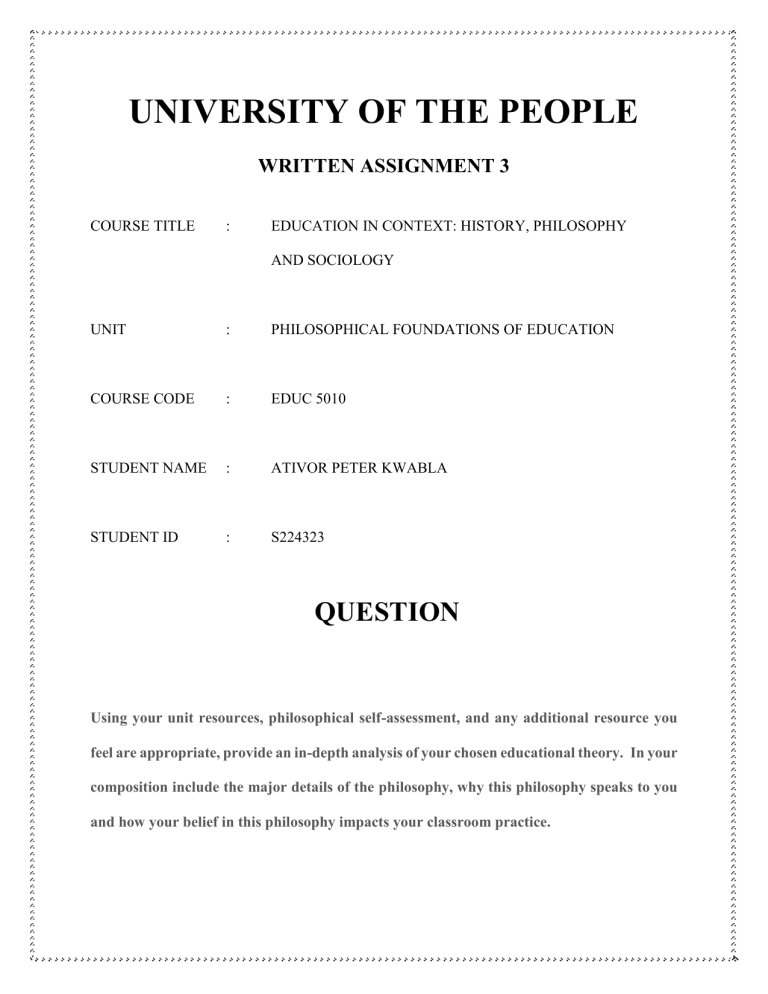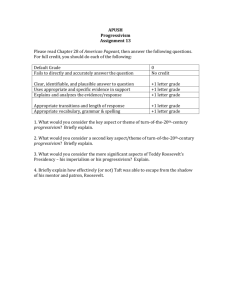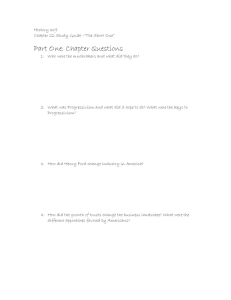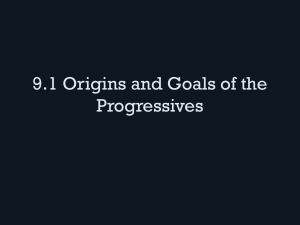
UNIVERSITY OF THE PEOPLE WRITTEN ASSIGNMENT 3 COURSE TITLE : EDUCATION IN CONTEXT: HISTORY, PHILOSOPHY AND SOCIOLOGY UNIT : PHILOSOPHICAL FOUNDATIONS OF EDUCATION COURSE CODE : EDUC 5010 STUDENT NAME : ATIVOR PETER KWABLA STUDENT ID : S224323 QUESTION Using your unit resources, philosophical self-assessment, and any additional resource you feel are appropriate, provide an in-depth analysis of your chosen educational theory. In your composition include the major details of the philosophy, why this philosophy speaks to you and how your belief in this philosophy impacts your classroom practice. Education is ‘participation of the individual in the social consciousness of the race’ (Dewey, 1897). As such, education should take into account that the student is a social being. The process begins at birth with the child unconsciously gaining knowledge and gradually developing their knowledge to share and partake in society. Having read through the educational theories thoroughly, I have come to the realization that the one that resonates with my philosophical belief of teaching is the progressivism theory of education. According to Lynch, M. (2016), ‘progressivism is based on the positive changes and problem-solving approach that individuals with various educational credentials can provide their students. Progressivist educators are outcome focused and don’t simply impart learned facts. Teachers are less concerned with passing on the existing culture and strive to allow students to develop an individual approach to tasks provided to them’. Based on this belief, one of the proponent of the theory (Dewey) is of the view that ‘knowledge is a social condition and it is important to help students construct their own’. This means that in teaching any concept to students, the teacher has to place the students in the centre of the learning process. The primary duty of the teacher is to facilitate the learning process by guiding the students to explore and develop their potentials. It has to be noted that with the progressive philosophical belief, emphasis is on the development of skills by the learners. Here the leaners are guided gradually to develop the expected skills that are needed to make them fit in society. Some of these skills include; reading writing and arithmetic (academic in nature). Social skills such as respect for authority, obeying of rules and regulations, character building among others are developed consciously by the individual. In the words of Lynch, M. (2016), ‘The progressivist classroom is about exploration and experience. Teachers act as facilitators in a classroom where students explore physical, mental, moral, and social growth. Common sights in a progressivist classroom might include: small groups, debating, custom-made activities, and learning stations. Teachers typically walk freely among the groups, guiding them using suggestions and thought-provoking questions’. Another important detail the theory pays attention to is experience. It is very important that learners are allowed to experiment and understand what they learn. This is evidenced in the popular Chinese maxim that ‘when I hear I forget, when I see I remember and when I do I understand’. It is only when the learners are allowed to experiment then that they would be able to understand and remember it to solve challenging problems in order to make the world a comfortable place for all to live in. Also, the proponents of the theory have provided a criteria for a subjective assessment. They believed that the best form of assessing the learning outcome of the students should be tasks based on skills learnt. By so doing, the learner would be able to showcase their creativity and feeling more important than lazily relying on recall of facts as in rote learning. In view of this, the subject-matter of education is very paramount to the progrssivist. According to Dewey, ‘the curriculum in the school should reflect that of the society. The centre of the curriculum should reflect the development of the society’. It is impotent that subjects such as language, science and history must be given priority in designing of the curriculum. This is because every society needs these subjects to develop well and make life comfortable for its citizens. Furthermore, Dewey (1997) is of the view that the study of the core subjects should be compelled with the study of cooking, sewing and manual training. This is because to him ‘progress is not in the succession of new attitude and interest in, experience’. The impact of the progressivism theory is deeply rooted in my philosophical belief of teaching and speaks for me. This is because during my lessons I subject my students to series of thought provoking questions in order to make them think critically. By so doing, they are able to provide best answers to challenging questions. Again, I have always make good use of grouping discussions in my lesson delivery. I make sure that I put my learners in into small groups and give them tasks to perform in their respective groups. The primary aim of grouping them is to enable them first explore this at first hand for themselves and secondary to enable them learn certain social skills, values, and attitudes that are needed for one to fit well in society. These include cooperation, tolerance and respect for one another. Finally, when I want to assess my students, I make sure I give them application questions to solve not just a mere stating of facts and knowledge. This enable them to bring out the potential in them and eventually develop it for future use. In conclusion, the progressivism educational theory in my view is by far the most appropriate and applicable approach to teaching and learning where the child is place at the centre of the learning process. It is therefore highly recommended for both policy makers of education and educator in the classroom References: Labaree, D. (2005, February). Progressivism, schools, and schools of education. Retrieved March 07, 2018, from https://www.academia.edu/7055356/Progressivism_Schools_and_Schools_of_Education Amidon, J., Monroe, A., & Ortwein, M. (n.d.). Progressive education. In Education, society, & the K12 learner. Retrieved March 02, 2018, from https://courses.lumenlearning.com/teachereducationx92x1/chapter/progressive-education/ This article provides you with another perspective on progressive education and its effects on schooling. Lynch, M. (2016, November 03). Philosophies of education: 3 types of student-centered philosophies. Retrieved March 07, 2018, from http://www.theedadvocate.org/philosophies-education3-types-student-centered-philosophies/ Lynch, M. (2016, August 05). Philosophies of education: 2 types of teacher-centered philosophies. Retrieved March 07, 2018, from http://www.theedadvocate.org/philosophies-education-2-typesteacher-centered-philosophies/



